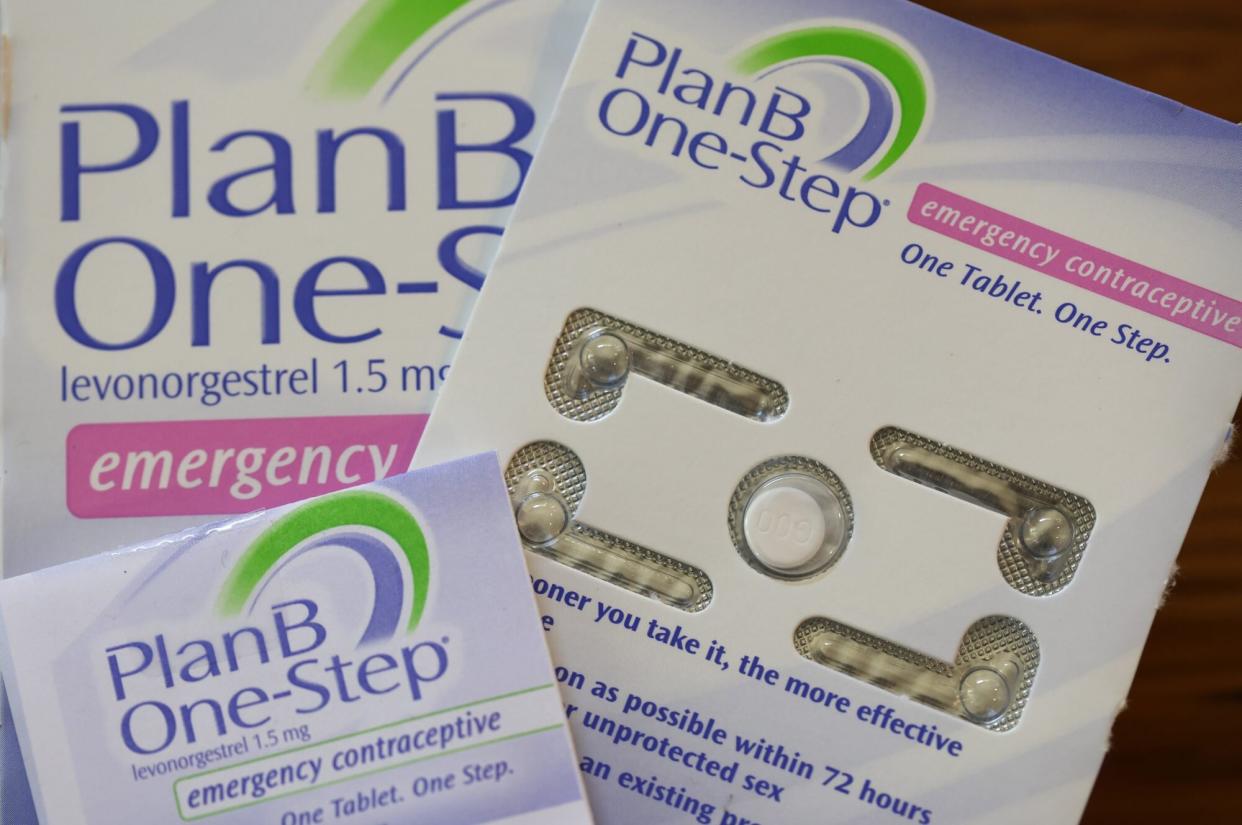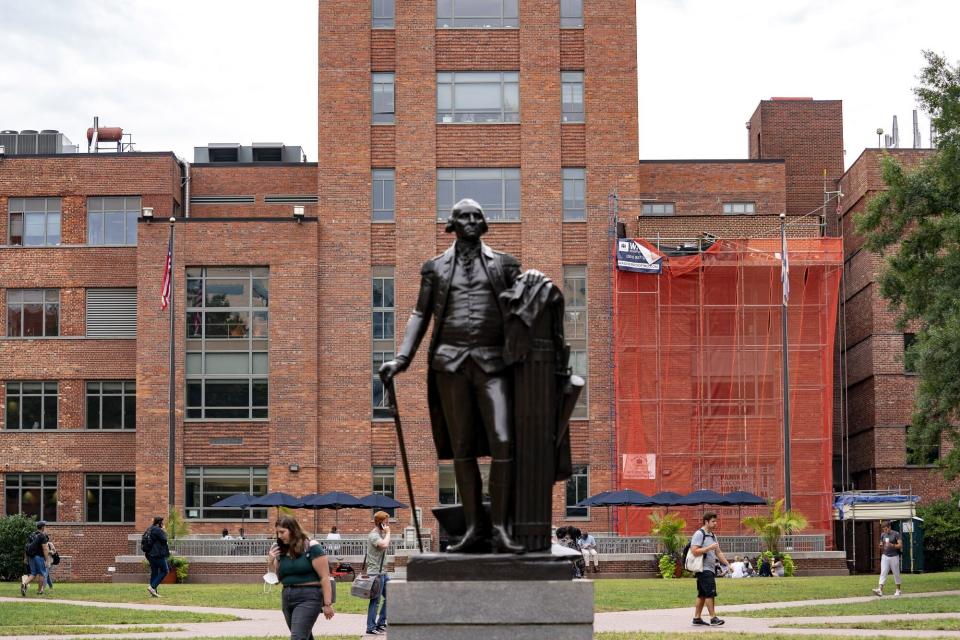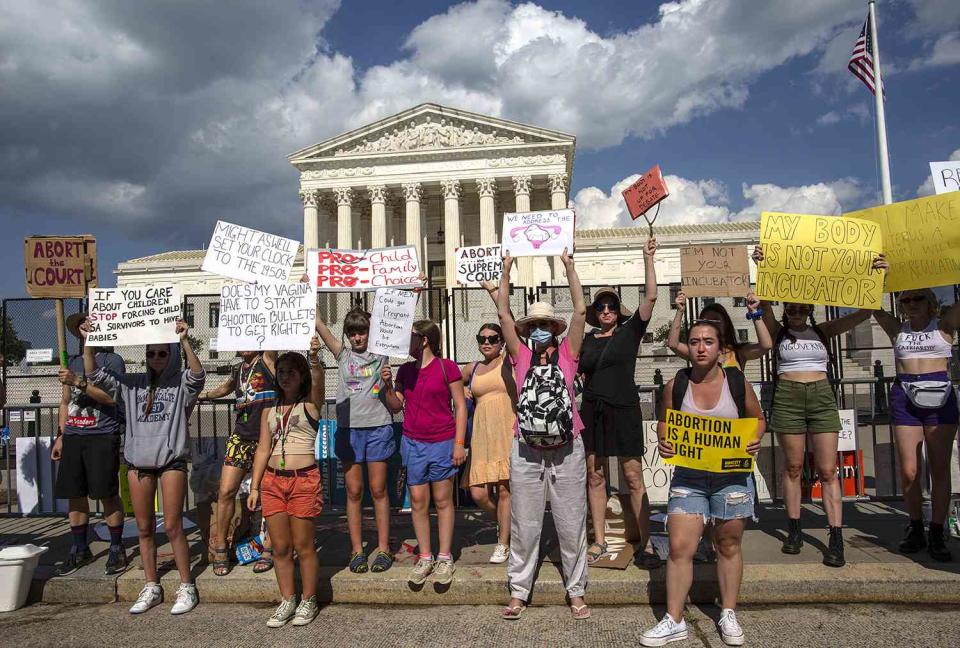GWU Students Put a Morning-After Pill Vending Machine on Campus

Justin Sullivan/Getty
Two George Washington University students are making access to emergency contraception a less daunting task for their peers.
Senior Aiza Saeed and sophomore Neharika Rao have worked with school administration to bring the "morning-after" pill to a vending machine located in the basement of the school's student center, according to The Washington Post. There, the pills are kept at the necessary temperature and are available to students in a discreet location.
RELATED: CVS and Rite Aid Capping Purchases of Emergency Contraception as Demand Spikes

Stefani Reynolds/Bloomberg via Getty
"You could get Doritos and Plan B at the same time," Saeed told the Post.
The two students, who are both involved in student government, led the effort after a suggestion from their student president following last year's Supreme Court ruling overturning Roe v. Wade.
The president, Christian Zidouemba, noticed students' calls for the firing of Supreme Court Justice Clarence Thomas — who teaches at GWU's law school — and brainstormed some ways in which the students of the school could respond through helpful action.
The vending machine provides the pills with no subsidization from the university or the student government. While the school did provide emergency contraception at their student health care center, this option may have been too expensive or too inaccessible for some students who need the pill late at night or on weekends.

Probal Rashid/LightRocket via Getty Images
The pills in the vending machine are offered in the generic form for $30 — a competitive price compared to the average $50 price tag at most pharmacies.
Though the machine was met with some criticism from people who were concerned at the ease with which young adults could access the pills, the overwhelming response was a positive one, as a portion of the student body called for more of the machines in dormitories and with cheaper pricing to be more accessible for all students.
Never miss a story — sign up for PEOPLE's free daily newsletter to stay up-to-date on the best of what PEOPLE has to offer, from juicy celebrity news to compelling human interest stories.
"Overall the reaction is we need this on our campus and we need to make sure it's less expensive and more discreet so people can purchase it," Zidouemba said.
Saeed told the Post they have applied for grants to increase financial accessibility, and the two leaders of the effort hope to subsidize costs even more in the future.

